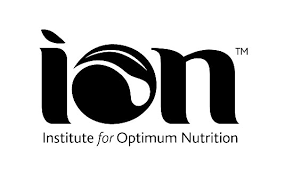11/10/2022
Documentary about an African woman’s food story facing climate change and inequality
When our co-founder Janie Ash, who was born in Zimbabwe, learnt of this film about Anita Chitaya, from neighbouring Malawi, she was inspired to discover her food journey and the documentary film on her fight for gender equality and the challenges of climate change.
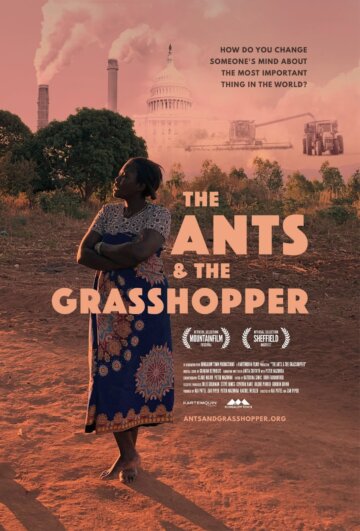
“Anita Chitaya has a gift; she can help bring abundant food from dead soil, she can make men fight for gender equality, and she can end child hunger in her village. Now, to save her home from extreme weather, she faces her greatest challenge: persuading Americans that climate change is real. Travelling from Malawi to California to the White House, she meets climate sceptics and despairing farmers. Her journey takes her across all the divisions shaping the US, from the rural-urban divide, to schisms of race, class and gender, to the thinking that allows Americans to believe we live on a different planet from everyone else. It will take all her skill and experience to persuade us that we’re all in this together.
This documentary, ten years in the making, weaves together the most urgent themes of our times: climate change, gender and racial inequality, the gaps between the rich and the poor, and the ideas that groups around the world have generated in order to save the planet
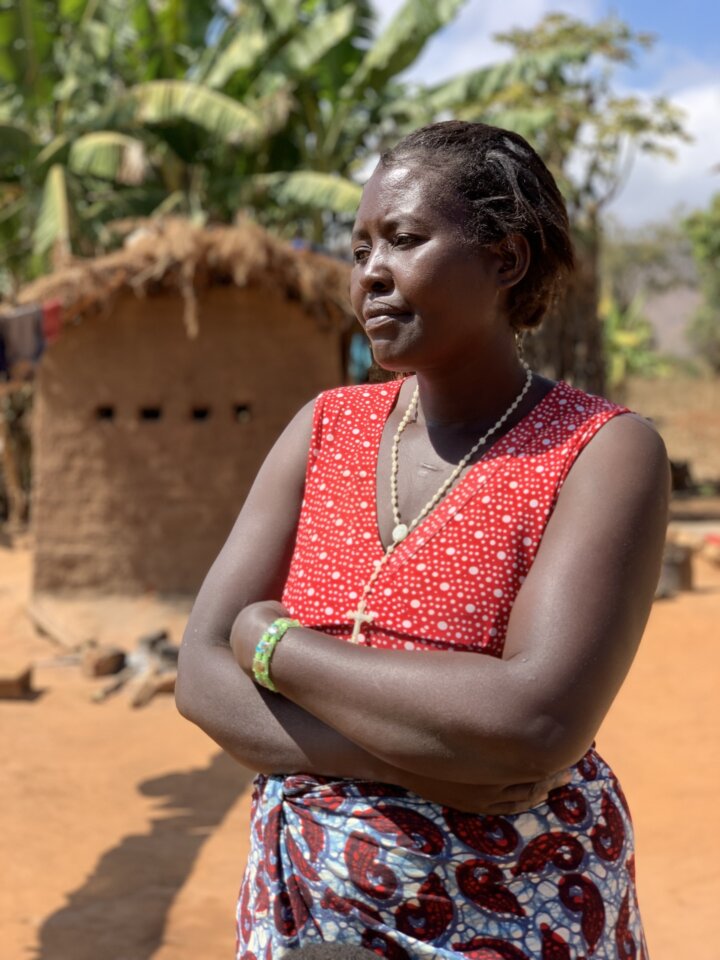
Tell us how you got into the food industry?
For me to become a farmer, firstly I was a mother who had malnourished children. Through the SHFEC project, I was a member of FRT, so from there that’s when I started farming because I found out measures of how we can improve our soils. If we were to six our soils, it would give us plenty food, when we have plenty food, our health too would improve to the better. That’s how I started.
Please share with us your greatest challenges?
My greatest challenge I meet in my farming and life is the lack of rains, also manure takes some time, even if you are to have a lot of livestock, we can apply the manure, but the soil takes some time to improve as compared to the fertilizers. With the manure alone we do harvest but it takes some time to realize a bumper yield.
What is your purpose and passion?
My passion in life is for us women not to be looked down by our husbands. We should have equal rights in terms of working together, in terms of the money we find in our farming, so that we share equally and work together.
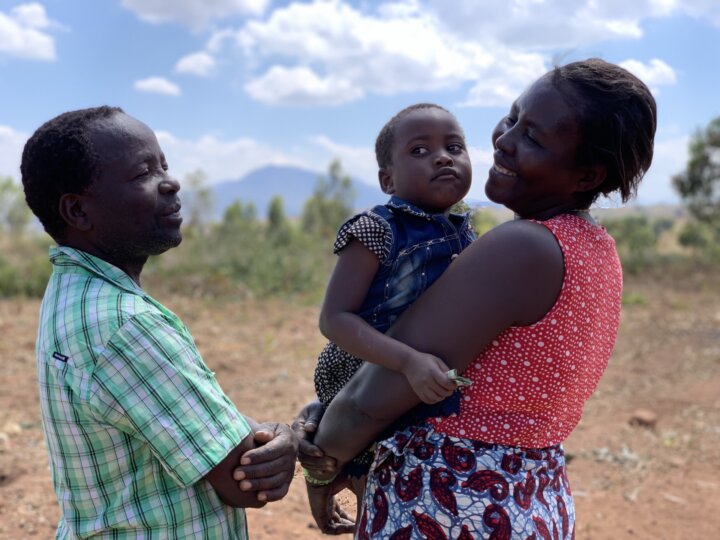
Have you ever experienced any discrimination because you’re a woman?
Yes, there was a time in the past before we had learnt about gender. Because the men were saying that we have taken you. Like in our culture they pay dowry, so its like you are bought, all the jobs are piled on you and the man just sits and does nothing. Whether the child is sick, whether you are coming from the fields you carry all the tools or you are cooking, everything you have to do yourself while he is just sitting. So, this was the most painful time where we were discriminated as a woman. But since we were women there was nothing, we could do.
How do we tackle gender inequality in the food industry?
The best way to tackle gender inequality is to involve the men and to teach them about gender, working together and empowering the woman in taking up some roles.
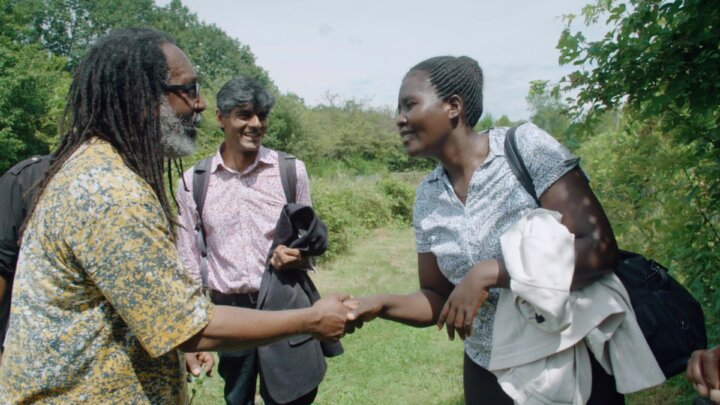
What’s your favourite meal / food?
I love to have all the 6 food groups, I make sure my family is provided with the six food groups, every day we have to have the six food groups.
Who inspires you?
I have been inspired by Rachel (Rachel Wexler, the film’s Producer) because of the love and passion for good health and awareness of climate change.
What are you doing about sustainability and climate change?
What we are doing in line with climate change is to continue growing different types of crops. Many of them from bean groups which restore nutrients in the soil like Groundnuts, Peas, Soya, Millet, Maize and also making different types of Manure that should help us restructure our soil.
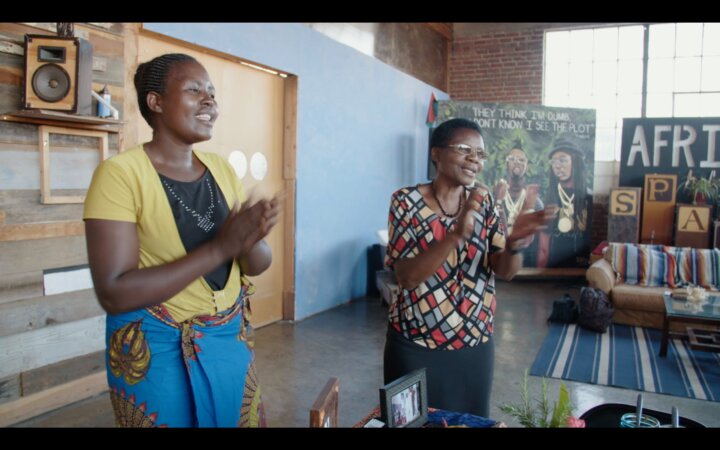
What would you tell your younger self?
What I would have told my younger self is what I hope for the youthful generation today: the importance of preparing our farms, the importance of taking care our nation. We have to plant trees and different types of trees, which can be established to give us abundant rains and provide fresh air. We have to also do crop rotation that can restore nutrients in our farms.
We have to plant trees which can give us nutrients in our farms just like, GRACIDIA, KEISHA, Nsenga and other that can restore nutrients in our soil. Because if we are to restore the trees, that means water also, even when the rainfall drops, the water will stabilize and the runoff will be low to distract our farms thereby forming dambos in our farms.
So this is what we have to encourage the youth to know how importance of this. Because times have changed between then and now. That’s what we tell the youth.
THE ANTS & THE GRASSHOPPER was released by Dartmouth Films on September 23rd in cinemas, and with numerous community groups across the UK. Directed by Raj Patel (The Value of Nothing, Stuff) and Zak Piper (Life Itself, The Interrupters). You can find out more about The Ants & The Grasshopper project here. Thanks to Peter Mazunda for translating this interview.














